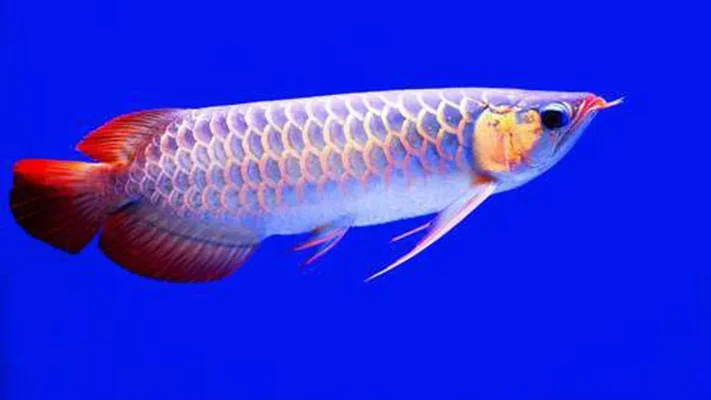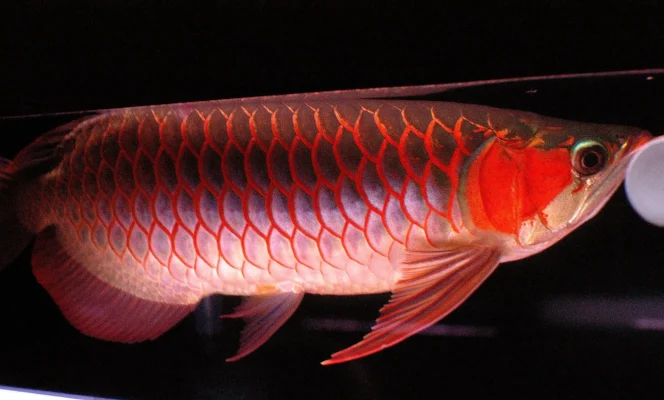Best powerful tips about Arowana Fish that you need to Know
Best powerful tips about Arowana Fish that you need to Know 2025
Have you ever heard of a fish that can jump out of water to catch its prey? Or one that’s believed to bring good luck and prosperity? Well, let me introduce you to the fascinating world of the arowana fish! Often called the “dragon fish” due to its sleek, serpentine appearance and shimmering scales, the arowana is a true marvel of the aquatic world.
What is an Arowana Fish?
Arowanas, scientifically known as Osteoglossidae, are a family of freshwater fish that have been swimming in our planet’s waters for over 150 million years. That’s right – these living fossils have been around since the time of dinosaurs! Native to parts of South America, Africa, and Asia, arowanas are known for their elongated bodies, large scales, and unique ability to breathe air using a lung-like organ called the labyrinth.
Arowana Origins , Habitat and Distribution
Arowana fish inhabit the tropical regions of Southeast Asia, including countries like Malaysia, Indonesia, and Thailand. They are commonly found in slow-moving rivers, lakes, and flooded forests. These environments provide the perfect conditions for Arowanas to thrive, with warm temperatures and ample hiding spots among submerged vegetation. The Arowana fish has a rich cultural significance in many countries, often considered a symbol of luck, prosperity, and power.

Arowana Appearance and Varieties
The allure of Arowana fish lies in their striking appearance. They boast elongated bodies, large scales, and distinctive barbels near their mouths, resembling a dragon in motion. Arowanas exhibit a range of mesmerizing colors, including vibrant reds, shimmering silvers, and iridescent golds.
There are several varieties of Arowana, each with its unique characteristics. From the iconic Silver Arowana to the rare Platinum Arowana, enthusiasts are spoiled for choice when it comes to selecting these prized specimens. Explore our collection of Arowana fish for sale to discover the beauty of these aquatic treasures.
Types of Arowana Fish
There are several species of Arowana fish, each with its distinct characteristics and beauty. Some of the most popular types include:
- Asian Arowana (Scleropages formosus): This species is highly sought after for its vibrant colors and elegant swimming style. It is often referred to as the “Dragon Fish” due to its resemblance to the mythical creature.
- Silver Arowana (Osteoglossum bicirrhosum): Known for its silver scales and sleek body, the Silver Arowana is a graceful swimmer and a prized addition to any aquarium.
- Black Arowana (Osteoglossum ferreirai): With its dark, almost black coloration, the Black Arowana exudes an air of mystery and intrigue. It is a rare and highly coveted species among collectors.
- Jardini Arowana (Scleropages jardini): This species is characterized by its vibrant green coloration and intricate patterns on its scales. It is often called the “Australian Arowana” and is known for its active and playful nature.
Why Arowanas Are the Crown Jewels of Aquariums
Arowanas are more than just fish; they’re a statement. Revered in Asian cultures for their resemblance to dragons, they’re believed to bring good fortune and ward off negative energy. Their sleek, elongated bodies and vibrant colors make them a stunning centerpiece in any aquarium.
But beauty comes with responsibility. Arowanas are large, active, and demanding creatures. They can grow up to 3 feet long and live for over 20 years with proper care. This makes them a long-term commitment that requires meticulous attention to detail. How Big Do Jardini Arowana Get
Arowana Behavior and Temperament
Despite their regal appearance, Arowana fish are known for their territorial and predatory nature. They are skilled hunters, preying on smaller fish, insects, and even small mammals in the wild. In captivity, proper tank management and feeding schedules are essential to ensure the well-being of these majestic creatures.
Arowana Care and Maintenance
Owning an Arowana requires careful attention to their habitat and dietary needs. From maintaining water quality to providing adequate space for swimming, proper care is essential for their health and longevity. Learn more about Arowana Care to create the perfect environment for your aquatic companions.
Arowana Tank Size and Setup
Arowanas are surface dwellers and powerful jumpers, so space is non-negotiable. For a single adult Arowana, a tank of at least 250 gallons is recommended. Larger species, like the Silver Arowana, may require even more room. A longer tank is preferable over a taller one, as it provides ample swimming space and mimics their natural habitat16.
Arowana Water Parameters
Arowanas thrive in slightly acidic to neutral water with a pH between 6.0 and 7.0. The ideal temperature range is 75–82°F (24–28°C). Regular water testing is essential to maintain optimal conditions, as Arowanas are sensitive to ammonia, nitrites, and nitrates37.
- Temperature: 75-82°F (24-28°C)
- pH: 6.0-7.0
- Hardness: 5-15 dGH
Arowana Feeding and diet
Arowanas are predatory fish with hearty appetites. In the wild, they’re known to eat insects, small fish, and even birds! In captivity, their diet should consist of:
- Live foods: insects, small fish, crustaceans
- High-quality pellets formulated for carnivorous fish
- Occasional treats like pieces of lean meat or seafood
| Parameter | Optimal Range |
|---|---|
| pH Level | 6.0–7.0 |
| Temperature | 75–82°F (24–28°C) |
| Ammonia/Nitrites | 0 ppm |
| Nitrates | < 40 ppm |
3. Filtration and Aeration: Keep It Clean
Arowanas produce significant waste, so a robust filtration system is a must. Canister filters or sump filters are ideal for maintaining water quality. Additionally, ensure proper aeration to keep oxygen levels high, as Arowanas are active swimmers and require well-oxygenated water711.
Adult arowanas typically need to be fed 2-3 times a week, while younger fish may require daily feeding.

Arowana Tankmates
When choosing tankmates for Arowana fish, it is crucial to consider their size and temperament. Arowanas can be aggressive towards smaller fish, so it is best to keep them with larger, non-aggressive species. Some suitable tankmates include large cichlids, catfish, and other robust fish that can withstand the Arowana’s presence.
Arowana Rarity and Value
The allure of Arowana fish extends beyond their physical beauty; they are also highly prized for their rarity and symbolism. Certain varieties, such as the Platinum Arowana, command exorbitant prices in the aquarium trade due to their scarcity and unique characteristics. Explore our collection of Platinum Arowana for sale* to add a touch of luxury to your aquatic display.*
The Cultural Significance of Arowanas
Arowanas aren’t just beautiful fish – they hold deep cultural significance in many parts of the world, particularly in Asia.

Symbol of Good Luck and Prosperity
In Chinese culture, arowanas are believed to bring good luck, prosperity, and protection against negative energy. Many businesses and homes in Asia display arowana aquariums as a symbol of wealth and success. Crossback Arowana Patterns
Connection to Dragon Mythology
The arowana’s resemblance to the mythical dragon has earned it a special place in Asian folklore. Some believe that keeping an arowana can bring the power and wisdom of the dragon into one’s life.
Conservation Status and Ethical Considerations
While arowanas are popular in the aquarium trade, it’s important to consider their conservation status:
- Asian arowanas are listed as endangered by the IUCN Red List
- The trade of Asian arowanas is regulated by CITES (Convention on International Trade in Endangered Species)
- Captive breeding programs help reduce pressure on wild populations
If you’re considering an arowana as a pet, always ensure you’re purchasing from a reputable, licensed breeder who follows ethical breeding practices.
Arowana Behavior and Intelligence
One of the most fascinating aspects of arowanas is their behavior and intelligence:
- They’re known to recognize their owners and may even eat from their hands
- Arowanas have excellent eyesight and can jump out of the water to catch prey
- They exhibit complex social behaviors and can become territorial
Understanding these traits is crucial for providing proper care and enrichment in captivity.
Common Challenges in Arowana Care
While rewarding, keeping arowanas can present some challenges:
- Space requirements: Their large size demands significant tank space.
- Aggression: They can be territorial, especially with other large fish.
- Jumping behavior: Secure lids are essential to prevent escape attempts.
- Cost: High-quality specimens can be extremely expensive.
Breeding Arowanas: A Complex Endeavor
Breeding arowanas in captivity is no easy task. These fish have some unique reproductive behaviors:
- Male arowanas are mouthbrooders, meaning they incubate the eggs in their mouths
- Breeding pairs can be aggressive and need large, specialized setups
- Successful breeding often requires expert knowledge and precise environmental control
If you’re interested in arowana breeding, it’s best to consult with experienced breeders or aquaculture specialists.

The Future of Arowana Conservation
As interest in arowanas continues to grow, so does the importance of conservation efforts. Organizations like the Asian Arowana Conservation Programme are working to protect wild populations and promote sustainable breeding practices.
Feeding Your Arowana: A Carnivore’s Delight
Arowanas are carnivorous predators with a voracious appetite. Their diet should reflect their natural hunting instincts, combining variety and nutrition.
1. What to Feed
-
Live Foods: Feeder fish, shrimp, and insects like crickets and mealworms.
-
Frozen Foods: Krill, fish fillets, and bloodworms.
-
Pellets: High-quality floating pellets designed for carnivorous fish16.
2. Feeding Schedule
-
Juveniles: Feed 2–3 times daily to support rapid growth.
-
Adults: Feed once daily or every other day to prevent obesity37.
Pro Tip: Avoid overfeeding, as uneaten food can pollute the water and harm your Arowana’s health.
Choosing the Right Tank Mates
Arowanas are solitary by nature and can be territorial. While they’re best kept alone, some larger, non-aggressive species can coexist with them. Suitable tank mates include:
-
Clown Knifefish
-
Oscars
-
Large Catfish
Avoid small or slow-moving fish, as they may become prey18.
Common Health Issues and Prevention
1. Drop Eye Syndrome
This condition, where one or both eyes point downward, is common in Arowanas. While its exact cause is unknown, maintaining a balanced diet and minimizing stress can help prevent it25.
2. Swim Bladder Disorders
Overfeeding or poor water quality can lead to swim bladder issues. Regular water changes and a varied diet are crucial for prevention711.
3. Parasitic Infections
Arowanas are susceptible to parasites like Ich. Quarantine new tank mates and maintain pristine water conditions to reduce the risk58.
The Cultural Significance of Arowanas
In many Asian cultures, Arowanas are more than just fish—they’re symbols of wealth, power, and prosperity. The Asian Arowana, in particular, is highly prized and often referred to as the “dragon fish.” Its vibrant colors and graceful movements are believed to bring good luck and positive energy16.
Final Thoughts: Is an Arowana Right for You?
Owning an Arowana is a rewarding but demanding experience. These magnificent fish require a significant investment of time, money, and effort. But for those willing to take on the challenge, the payoff is unparalleled.
If you’re ready to embark on this journey, remember: a well-cared-for Arowana is not just a pet—it’s a masterpiece.
Call-to-Action:
Ready to elevate your aquarium game? Share your Arowana stories or questions in the comments below, and let’s build a community of passionate aquarists!
References:
-
Essential Tips for Arowana Fish Care and Maintenance


 Deutsch
Deutsch
